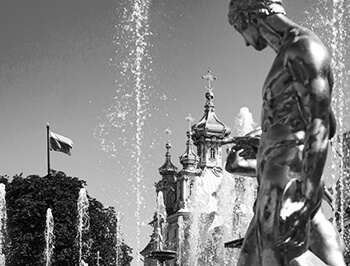Things fall apart: Is Nigeria’s US$11bn Escape a Wake-Up Call for International Arbitration?
Last week’s judgement in the English High Court that a US$11bn arbitration award against Nigeria was obtained through fraud may be the most significant ruling for the international arbitration profession in years.
As the judge saw it, “the matter touches the reputation of arbitration as a dispute resolution process.” And he posed the question: should arbitration involving states and state-owned entities be public? Greyhawk believes that it should.
A recap: In 2010, Nigeria signed a brief gas supply agreement with P&ID, a BVI company founded by Michael Quinn. Quinn spent his early career promoting bands in Ireland. By the 2000s, he was chancing his luck in Nigeria, where he struck deals with the police and military. He paid the “expenses” of a few colonels, but not much kit was supplied. He saw an opportunity when the government signalled its intention to use some of the gas that was then mainly flared by oil companies. Plans for a gas processing plant in Lagos came to nothing. Undeterred, he put forward another scheme in the country’s East. Under an agreement struck in 2010, P&ID would build a gas processing plant and Nigeria would supply it with gas over 20 years. But that also came to naught. P&ID claimed Nigeria reneged on the deal and began arbitration in 2012. It argued that it had invested US$ 40m in the proposed plant, further that it had financing and land to build it. P&ID blamed Nigeria for the contract failure.
In reality, the US$ 40m PI&D claimed to have invested was on a different project hundreds of miles away that had never taken off. It had neither the financing in place for the disputed gas plant nor any land on which to build it.
Nevertheless, in 2017 a tribunal of distinguished arbitrators ruled that Nigeria should pay P&ID US$6.6bn, which interest had increased to US$11bn by the time the English High Court was asked to look again.
In setting aside the tribunal’s decision last week, Mr Justice Knowles found that the award was “obtained by fraud”. P&ID had secured it “only by practicing the most severe abuses of the arbitral process”.
If P&ID had monetised its award, its barrister would receive up to £850m and its solicitor £3bn. The judge repeatedly found their evidence to be “untrue”. He described their conduct as “indefensible” and has referred them to their regulators. (Both deny wrongdoing. The judge acknowledged the ethical conduct of the established law firms that later represented P&ID in the set-aside litigation).
How did the arbitral process go so badly wrong?
There are mitigating factors when considering the tribunal’s extraordinary decision.
First, Nigeria shares some of the blame. For too long, it failed to take the claim seriously. Ministries squabbled about who would pay the legal bills. The judge lamented its “incompetence and neglect” which made a bad problem worse.
Second, the tribunal did not know how assiduously P&ID had bribed key Nigerian officials. Initially, the bungs were made to grease the drafting and signing of the flawed agreement. The most frequent beneficiary was Grace Taiga, a lawyer at Nigeria’s Petroleum Ministry and the official who put the contract in her Minster’s in-tray. Later, as P&ID formulated its claim, more bribes to Taiga and others kept the corrupt officials onside.
Third, throughout the arbitration, someone close to the Nigeria camp was leaking its confidential documents to P&ID. As the judge saw it, this gave the company the inside track on “Nigeria’s internal consideration of merits, strategy and settlement”. (It was lawyers’ use of these privileged documents which attracted the judge’s most biting criticism).
But nothing can justify the 2017 award. The tribunal looked at the case through a straw. It ignored Quinn’s dubious track record and the pitfalls of investing in Nigeria. It failed to consider why – and how – gas was supposed to be supplied to a plant that didn’t exist. In short, it failed to grasp the absurdity of projecting billions in profits for a venture that hadn’t as much as hired a cement mixer.
As the judge put it: “the arbitration was a shell that got nowhere near the truth”.
It would be complacent to assume P&ID was a one-off. East Africa has produced iffy arbitrations where government lawyers have contrived to mount suspiciously weak defences, leaving an open goal for predatory claimants. Sham commercial arbitrations have long been used to siphon funds out of Eastern Europe. So, as Mr Justice Knowles invited us to do, P&ID should “provoke debate and reflection among the arbitration community.”
On the confidentiality of arbitration, the argument is surely overwhelming. Arbitral claims involving sovereigns and state entities should not be deliberated behind a screen. The last word should go to the trial judge: “An open process allows the chance for the public and press to call out what is not right.”
Contact us:
"*" indicates required fields

